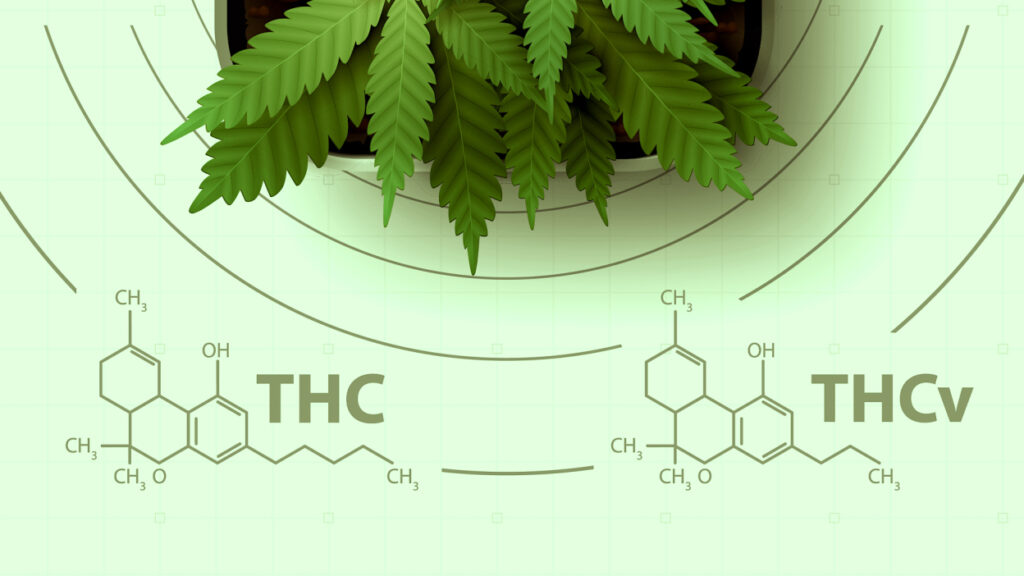Introduction
In the ever-evolving world of cannabinoids and cannabis-related products, consumers are constantly introduced to new compounds and variations that might seem confusing at first. Two such compounds that have garnered attention in recent times are Delta-10 (Δ10) and THCV. While they share some similarities with better-known cannabinoids like Delta-9 THC and CBD, they also have distinct properties that set them apart. In this comprehensive guide, we will explore the key differences between Delta-10 and THCV, including their chemical structures, effects, potential benefits, and legality.
Understanding Delta-10 (Δ10)
Delta-10 (Δ10) is a relatively new and lesser-known cannabinoid in the cannabis family. Like its more famous counterparts, Delta-10 interacts with the endocannabinoid system in the human body. Here are some key characteristics of Delta-10
- Chemical Structure: Delta-10, as its name suggests, is a structural isomer of Delta-9 THC. This means it has a slightly different arrangement of atoms but is closely related in terms of its chemical structure.
- Origin: Delta-10 is believed to be naturally occurring in trace amounts in cannabis, but it can also be synthesized from other cannabinoids, such as Delta-9 THC or CBD.
- Psychoactive Properties: Delta-10 is reported to have psychoactive effects, although these effects appear to be milder than those of Delta-9 THC. Users often describe it as providing a clear-headed and uplifting experience.
- Potential Benefits: While research on Delta-10 is limited, some anecdotal reports suggest it may help alleviate pain, reduce anxiety, and promote creativity. However, more scientific studies are needed to confirm these potential benefits.
- Legality: The legal status of Delta-10 varies by location. It may be considered a controlled substance in some regions, so it’s essential to understand the local regulations and restrictions.
Understanding THCV (Tetrahydrocannabivarin)
THCV, or tetrahydrocannabivarin, is another lesser-known cannabinoid that has its own unique characteristics. Here’s what you need to know about THCV
- Chemical Structure: THCV is a structural analog of Delta-9 THC, similar to Delta-10. It has a different arrangement of atoms, which leads to distinct effects.
- Origin: THCV is found naturally in some cannabis strains, particularly those native to regions like Africa. However, it’s often present in lower concentrations compared to more common cannabinoids like Delta-9 THC and CBD.
- Psychoactive Properties: THCV can be psychoactive, but its effects differ from those of Delta-9 THC. THCV is often described as producing a clear and energizing high, which is shorter in duration compared to the high induced by Delta-9 THC.
- Appetite Suppression: One of the most distinctive properties of THCV is its potential to act as an appetite suppressant. Some research suggests that THCV may reduce the “munchies” associated with cannabis use, making it of interest in weight management and appetite control.
- Potential Benefits: THCV has piqued the interest of researchers for its potential in managing conditions like diabetes, obesity, and schizophrenia. However, more clinical studies are required to substantiate these potential benefits.
- Legality: Like Delta-10, the legal status of THCV varies by location. It may be considered a controlled substance in some areas, so understanding local regulations is crucial.
Key Differences Between Delta-10 and THCV
While Delta-10 and THCV share some similarities, they also have several significant differences
- Chemical Structure: Both Delta-10 and THCV are structural isomers of Delta-9 THC, meaning they have different arrangements of atoms in their molecules. Delta-10 is more closely related to Delta-9 THC in terms of chemical structure, while THCV has a distinct structure.
- Psychoactive Effects: Both compounds can produce psychoactive effects, but the nature of these effects differs. Delta-10 is often described as producing a milder and more clear-headed high, while THCV is known for its shorter-lasting, energizing, and uplifting high.
- Appetite Suppression: THCV stands out for its potential to suppress appetite, which is not a characteristic associated with Delta-10.
- Potential Benefits: While both Delta-10 and THCV have shown promise in preliminary studies and anecdotal reports, more research is needed to confirm their potential benefits. THCV has particularly gained attention for its potential role in managing specific health conditions, like diabetes and obesity.
- Natural Occurrence: THCV is found naturally in some cannabis strains, whereas Delta-10 is considered a rare and novel cannabinoid.
- Legality: The legal status of both Delta-10 and THCV can vary considerably by region. Users and producers must be aware of local regulations and restrictions.
Practical Tips for Using Delta-10 and THCV
If you decide to explore the effects of Delta-10 or THCV, consider the following practical tips
- Start with Low Doses: Begin with a low dose to gauge how your body responds to the compound, especially if you’re new to these cannabinoids.
- Use Reputable Sources: Ensure that you obtain Delta-10 and THCV products from reputable sources to guarantee purity and quality.
- Know the Legal Status: Familiarize yourself with the legal status of these compounds in your area, as it can vary from place to place.
- Seek Professional Advice: If you’re considering Delta-10 or THCV for potential health benefits, consult with a healthcare provider for guidance, especially if you have underlying medical conditions.
- Monitor Your Experience: Pay attention to how your body reacts to these cannabinoids, and adjust your use accordingly. If you experience adverse effects, discontinue use and seek medical advice if necessary.
- Stay Informed: Keep up with the latest research on Delta-10 and THCV to stay informed about their potential benefits and risks.
Conclusion
Delta-10 and THCV are two lesser-known cannabinoids that offer unique properties and potential benefits. As research in the field of cannabis and cannabinoids continues to evolve, more information will likely emerge about the effects and applications of these compounds. If you decide to explore Delta-10 or THCV, do so with a mindful and informed approach, and be aware of the legal and safety considerations in your region. As with any substance, responsible use is key to optimizing your experience while minimizing potential risks.

